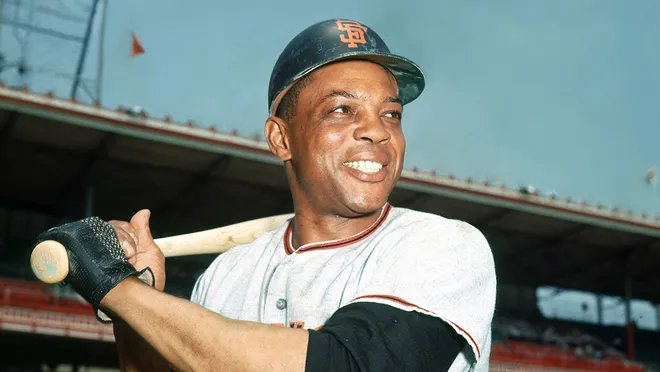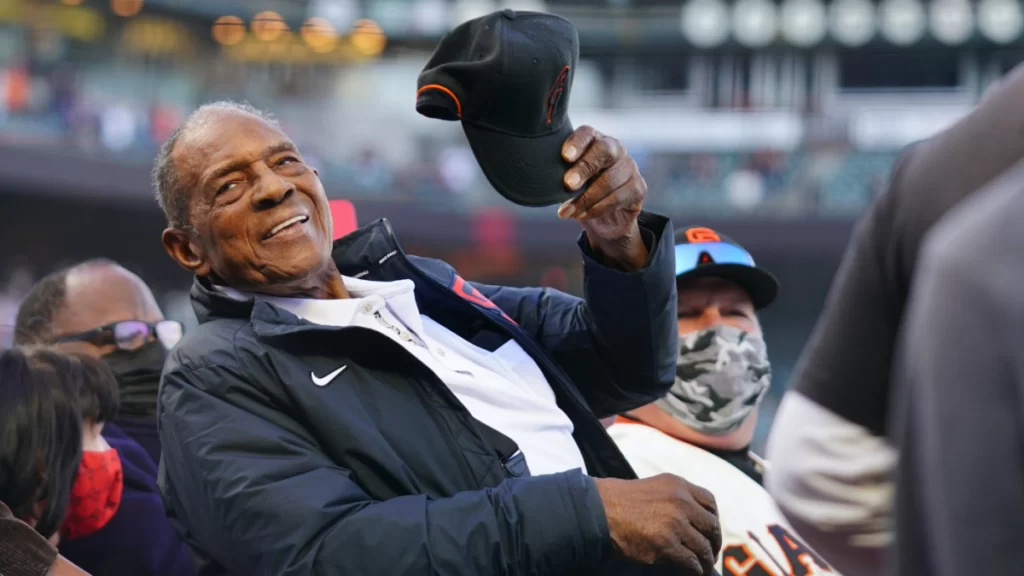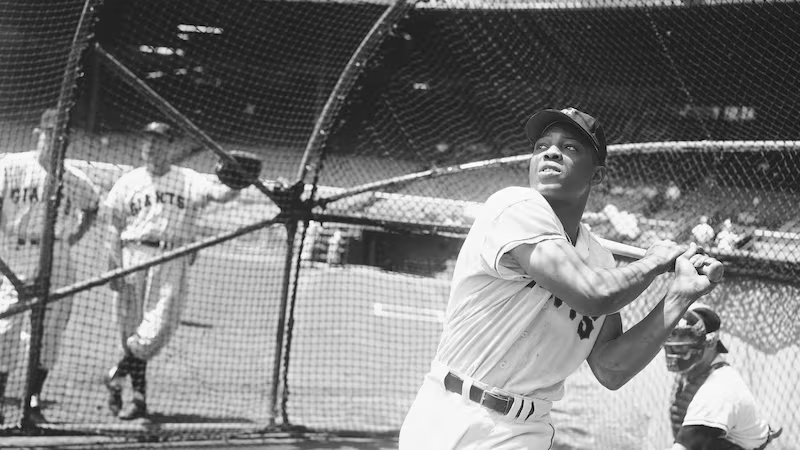Willie Mays, the Hall of Fame centerfielder whose all-around skills and exuberant playing style made him one of the greatest baseball players of all time, died on Tuesday at the age of 93. Major League Baseball announced his passing, with the San Francisco Chronicle reporting that Mays died of heart failure.
Mays, known as “The Say Hey Kid” for his standard greeting, played 23 seasons for the New York Giants, San Francisco Giants, and New York Mets, from 1951 through 1973. He was the epitome of a “five-tool player,” excelling at hitting for average, hitting for power, fielding, throwing, and baserunning.

Beyond his talent, Mays played with a verve and passion that endeared him to fans. He was known for playing stickball with kids on the streets of Harlem and for running with such speed and fury that his hat would fly off as he stole bases or chased down flyballs. His snag of a deep fly ball in the 1954 World Series, known simply as “The Catch,” remains one of baseball’s most iconic moments.
Mays, born in Westfield, Alabama, during the segregation era, was inspired to play ball by his father and uncle. He joined the New York Giants in 1951, four years after Jackie Robinson had integrated Major League Baseball, and went on to win Rookie of the Year honors. He missed most of the 1952 season and all of 1953 while serving in the U.S. Army during the Korean War.

Upon his return in 1954, Mays won the first of his two Most Valuable Player awards and led the Giants to a World Series sweep of the Cleveland Indians. When the Giants moved to San Francisco in 1958, Mays faced some challenges in winning over the local fans but continued to showcase his extraordinary skills.
Mays retired in 1973 after a final season with the New York Mets. He was elected to the Baseball Hall of Fame in 1979, his first year of eligibility, and was named to the all-star team a record 24 times, a feat shared only with Hank Aaron and Stan Musial. When he retired, Mays held third place on the all-time home run list with 660 and was the first player to hit 300 homers and steal 300 bases.

Baseball writer and historian Charles Einstein captured Mays’ essence in his book “Willie’s Time,” quoting the legend as saying, “I thought I was [the greatest player ever]. I hope I didn’t say that wrong.”
Willie Mays’ legacy as one of baseball’s all-time greats is secure, and his passing marks the end of an era for the sport he loved and played with such joy and brilliance.
Reuters



